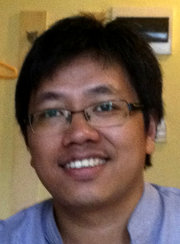 By ANDREW JACOBS SEPT. 15, 2015
By ANDREW JACOBS SEPT. 15, 2015
BEIJING — The Chinese authorities on Tuesday released a founder of a research institute who was instrumental in helping the legal activist Chen Guangcheng gain asylum in the United States after he escaped house arrest three years ago.
The founder, Guo Yushan, a scholar who led the Transition Institute, was released from custody along with He Zhengjun, the administrative director of the now-closed institute, according to family members and lawyers.
Both men have been accused of illegally printing books and other publications, charges that remain in effect while they are free on bail.
Their release, nearly a year after they were detained, came before President Xi Jinping of China travels to the United States next week for his first state visit. Some analysts interpreted the timing as an attempt by Beijing to blunt potential criticism in Washington of China’s human rights record.
Mr. Guo, 38, does not fit the standard profile of a provocateur. The institute he helped establish in 2007 used scholarship and hard data to make the case for reforming the taxi industry and for abolishing residency rules that complicate the lives of rural migrants living in big cities.
He steered clear of more assertive demands for change, including a short-lived campaign orchestrated by a colleague, Xu Zhiyong, that used street protests to highlight official corruption and inequality in education. The authorities promptly crushed the campaign, the New Citizens Movement, and jailed its leaders, including Mr. Xu.
Although the work of the Transition Institute was not particularly radical, the source of much of its funding — liberal Western foundations — alarmed the authorities at a time when Beijing feared the Arab Spring revolutions in the Middle East might gain traction in China.
But it was Mr. Guo’s role in helping Mr. Chen, who is blind, sneak into the United States Embassy in Beijing — an episode that riveted the world and deeply embarrassed the Chinese government — that most likely caused the closing of his institute and prompted his eventual detention.
In a 2013 interview after he emerged from 81 days of house arrest, Mr. Guo said the police had warned of more serious consequences for having helped Mr. Chen make the 350-mile journey from rural Shandong Province to the nation’s capital.
A year later, he was taken into police custody during a late night raid on his Beijing apartment. Mr. He, 33, was detained a month later, and the two men were subsequently charged with “illegal business activity,” a charge related to 19,000 publications that the police said the institute had printed without official permission.
In a text message on Tuesday, Mr. Guo’s wife, Pan Haixia, said he returned home just after midnight on Tuesday. Ms. Pan, who said she was acting as his lawyer, described him as being in “good spirits” but declined to make him available for an interview.
A lawyer for Mr. He said by telephone that he was surprised to learn that his client had been released. The lawyer, who requested anonymity because he did not want to draw attention from the authorities, said the police lacked evidence to back up their allegations.
“Would you release someone who committed murder?” he asked. “They were released because they committed no crime at all.”
For detail please visit here
